Preclinical

Priya Handa, PhD
Director of Translational Biology

Priya Handa, PhD has over 15 years of experience in basic, preclinical and translational research spanning multiple disease areas including metabolic, hepatic, renal and ocular, among others. Prior to joining Juvena Therapeutics, Priya was a Principal Scientist and a team leader at Surrozen focused on tissue regeneration using their antibody platform in diseases with an unmet need. There, she championed several early stage discovery programs and was a key contributor to the Inflammatory Bowel Disease (IBD) program which is currently in Phase I clinical trials.
Prior to joining Surrozen, Priya made seminal observations on the pathological underpinnings of nonalcoholic steatohepatitis( NASH) in the Swedish Organ Care Research Program and Benaroya Research Institute at Seattle working closely with world-renowned physician-scientist, Dr. Kris Kowdley. She published her pivotal findings in leading journals such as Hepatology, and presented over 30 posters and gave 7 podium talks in prestigious conferences such as American Association in the Studies on Liver Diseases (AASLD) and Digestive Diseases Week (DDW) among others, on her key work on liver diseases including Primary Sclerosing Cholangitis and Primary Biliary Sclerosis. Prior to that, at the University of Washington’s Diabetes Institute, Priya uncovered a central role for vascular nitric oxide signaling in regulating adipose tissue inflammation and metabolic dysfunction and highlighted an essential role for ApoA1 in regulating inflammation.
She completed her Ph.D in the Indian Institute of Science delineating various DNA repair pathways, and received the best thesis award for her dissertation. She did her postdoctoral work at the University of Washington in Seattle on DNA repair and genomic instability. Priya has authored 38 publications including book chapters and reviews, and has presented her findings in numerous international meetings and is a co-inventor of a patent for corneal regeneration.
Learn more about Priya

Zhihua Li, PhD
Fellow - Bioanalytical Science
Dr. Li is a biologist with a multidisciplinary background in Biochemistry, Immunology, Cell and Molecular Biology, with 7 years of research experience in academia and 4 years in industry. He joined Juvena Therapeutics as a Protein Engineering Scientist to build protein expression and purification pipelines and to improve Juvena Therapeutics’ pipeline library of rejuvenating proteins for therapeutic purposes.
Following a BS in Biochemistry and Master’s Degree (MS) in genetics from scientific and technical universities in China, and a second MS in Molecular Microbiology and Immunology from the University of Southern California all during which he conducted research, Dr. Li completed his PhD (2007) and postdoctoral training (2014) in Cell and Molecular Biology from UT Austin, where he studied protein-protein interactions in different ways: first by combining computational predictions with experimental validations to discover 15 new protein factors functioning in the biogenesis of ribosomes; then by combining powerful mass spectrometry with protein fractionation techniques to create protein complex maps for both yeast and human cells. Continuing his exploration of novel protein interactions in his postdoctoral research, Dr. Li elucidated the self-cleavage mechanism of a novel membrane-bound transcription factor that drives oligodendrocyte differentiation. He’s published multiple co-authorships and first authorship studies along the way.
Before joining Juvena, Dr. Li worked in industry and biotech startups as Lead Scientist, Life Science Consultant, Scientific Advisor and R&D director. As Lead Scientist at BMLogic, Dr. Li developed and optimized the protein secretory production system in Pichia, leading to improved protein secretion efficiency and greatly reduced protein degradation.
Besides his passion for science, he enjoys spending time with his kid and exploring nature.
Learn more about Zhihua

Trang Vuong
Scientist I

Trang joined Juvena Therapeutics as a Scientist to contribute to Dr. Li’s research on developing various assays for advancing Juvena Therapeutics’ pipeline library of rejuvenating proteins for therapeutic purposes.
Trang obtained her undergraduate degree in Biochemistry and Molecular Biology from UC Davis and continued to study for her Master in Immunology at UC Davis. Before joining Juvena, she worked at Teva Pharmaceuticals and worked extensively in their antibody screening. She managed an early antibody discovery project and had experiences in running various animal models for lead efficacy testing. She has extensive experience in flow cytometry, assay development and project leadership.
Learn more about Trang

Han Song
Senior Associate Scientist

Han joined Juvena Therapeutics as a Research Associate to contribute to Dr. Li’s research on protein expression, purification pipelines, and to improve Juvena Therapeutics’ pipeline library of rejuvenating proteins for therapeutic purposes.
Han obtained his bachelor’s degree in biochemistry from the University of San Diego, with research areas focusing on exploring the enzymatic interactions of malate dehydrogenases and the utilization of defect-formations in the synthesis of metal-organic frameworks.
Before joining Juvena, Han worked as a Scientist III at the startup NovoNutrients for 4 years. He was heavily involved with the upstream and downstream process of gas fermentation using proprietary bioreactors and consortias. In addition to the fermentation work, he developed a novel synthetic biology platform to express high-value biomolecules ranging from enzymes, pharmaceuticals, to carotenoids in various consortia species. Later on, he took on the role of a strain engineer to develop a quick and reliable method to generate genomically-integrated strains of bacteria for industrial processes.
In Han’s free time, he enjoys playing the piano, hiking, and cycling around the Bay Area.
Learn more about Han
Pharmacology

Sharon Louie, PhD
Senior Scientist

Sharon joined Juvena Therapeutics as a Senior Scientist working on preclinical in vivo disease modeling and drug discovery. She received her B.S. in Molecular Toxicology and Ph.D in Metabolic Biology from UC Berkeley where she used chemoproteomic and metabolomic technologies to uncover metabolic drivers of triple-negative breast cancers. Sharon completed her post-doctoral training at Boston Children’s Hospital/Harvard Medical School where she developed a transplantation assay for lung stem cell-derived organoids to mouse models with lung disorders to assess the potential for future cell therapies. She then spent a few years in the biotech industry leading studies to support preclinical drug development.
Sharon has been awarded multiple fellowships during her time in academia, including the NSF graduate fellowship and the Hope Funds for Cancer fellowship. She is a co-author on 22 publications.
Learn more about Sharon
LinkedIn

Vengadeshprabhu Karuppa gounder, PhD
Senior Scientist - Pharmacology

Dr. Vengadeshprabhu Karuppa gounder, PhD, joined Juvena Therapeutics as a Scientist II working on preclinical in vivo disease modeling and drug discovery. Dr. Karuppa gounder brings over 10 years of pharmacology & drug development experience in academic research. Dr. Karuppa gounder has strong background in pharmacology, immunology and molecular biology. He has several years of experience developing preclinical animal models in areas of diabetes, NASH, cardiomyopathy, autoimmune diseases, aging, osteoarthritis, IBD, renal and inflammatory diseases.
Dr. Karuppa gounder completed his Undergraduate and Master’s work on Pharmaceutical Sciences at the TamilNadu DR. MGR Medical University, Chennai, India and did his Ph.D. studies at Niigata University of Pharmacy and Applied Life Sciences, Japan, where he studied the role of HMGB1 and GPCR role in diabetes and autoimmune disease models. Then he joined as a postdoctoral researcher at Penn State College of Medicine, PA. During his fellowship, Dr. Karuppa gounder established new methods to study the role of GPCR signaling in synovitis, osteoarthritis and osteoporosis in mouse models and treatment options.
Dr. Karuppa gounder achieved the first author in leading scientific journals, Science Translational Medicine, & Aging Research Reviews and co-author of several research and review articles, and bagged several awards and grants.
Learn more about Vengadeshprabhu

Ritwik Datta, PHD
Scientist

Ritwik Datta joined Juvena Therapeutics as a Scientist on the Pharmacology team. Ritwik is a physiologist with over ten years of experience. His expertise lies in comprehending the molecular basis of cardiometabolic diseases. Ritwik’s approach to investigating complex biological questions involves utilizing both mouse models and cell-based methods to develop innovative therapies for cardiometabolic and pulmonary diseases.
Ritwik received his Ph.D. from the University of Calcutta under the guidance of Sagartirtha Sarkar, Ph.D. Ritwik focused on studying how two major cell types in the heart – cardiac myocytes and fibroblasts – communicated with each other through secreted molecules and how these signaling pathways impacted cardiac fibrosis.
Ritwik completed his extensive postdoctoral training at the University of California, San Francisco (UCSF) in the lab of Kamran Atabai, MD. Ritwik’s research identified a novel integrin-mediated feedback loop of insulin receptor signaling that regulates skeletal muscle insulin sensitivity, laying the foundation for integrin-based therapy to lower daily insulin needs in diabetic patients. In his recent work, Ritwik investigated integrins’ role in regulating dietary fat metabolism in the intestine, providing insights into how intestinal lipid droplet homeostasis affects whole-body lipid metabolism and cardiovascular health.
Throughout his career, Ritwik has garnered recognition and support from prestigious organizations, including postdoctoral fellowships from the Larry L Hillblom Foundation, enabling him to pursue his research endeavors. Ritwik has 6, 1st author publications including in PNAS and Cell reports, and he is a co-author of 10 publications in leading scientific journals.
Besides his passion for science, Ritwik is a travel and photography enthusiast.
Learn more about Ritwik

Hee Ju Kim, MS
Senior Associate Scientist

Hee Ju joined Juvena Therapeutics as a Research Associate to work on the validation of our pipeline of pro-regenerative lead protein therapeutic candidates in in vivo preclinical models of aging and degenerative diseases caused by aging.
She is originally from Korea and she received her master’s degree in biochemistry from Korea University. Her master’s degree was supported by Brain Korea 21 (BK21). During her masters, she was trained in basic molecular techniques and in vitro experiments. Her master’s thesis was about double stranded DNA repair in yeast ribosomal protein S3.
Before joining Juvena Therapeutics, Hee Ju was trained as a research volunteer in the Peter W. Laird lab, Norris Cancer Center at the University of Southern California (USC). She was involved in the epigenomic projects and she designed the reaction oligo for Mouse MetyLight and some of the primers, which she designed, were published in the paper, Urology.
Hee Ju started improving her in vivo skills in the David J. Anderson’s lab as a research assistant for 5 years at the California Institute of Technology (Caltech). She was involved in the projects of anxiety and aggression. After she moved to Austin, she worked with Michael R. Drew as a research associate for 4 years at the Center for Learning and Memory, UT Austin. Then she worked at the KPC lab in Korea for 2 years in preclinical models of neurodegeneration, in particular Alzheimer’s Disease and Parkinson’s Disease.
In Hee Ju’s free time, she enjoys traveling with family, playing golf, and spending time with her lovely dog Kelly.
Learn more about Hee Ju
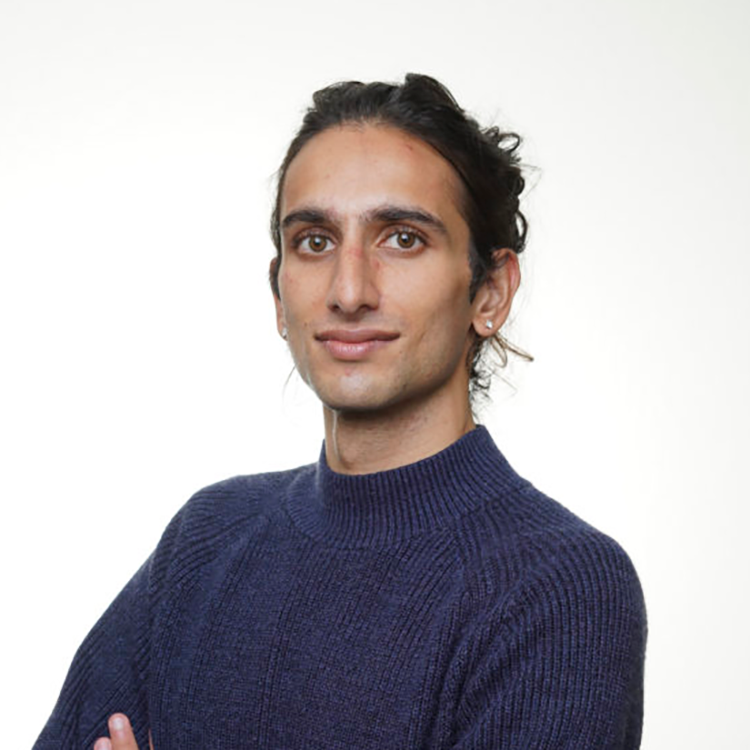
Ashil Koranne
Associate Scientist

Ashil joined Juvena Therapeutics as a Research Associate to contribute to pre-clinical in-vivo research, including the functional and behavioral validation of lead protein therapeutics developed by the in-vitro team.
Ashil obtained his bachelor’s degree in biology from the University of California, Riverside. Working in the Nabity Lab, he focused on genetics with the aim to parse out an endosymbiont genome from that of its host, the woolly apple aphid, to elucidate the mechanisms the endosymbiont utilized to fortify the amino-acid poor diet of the aphid.
Realizing his aptitude for dissection and surgery, he began a two-year stint at the Oka Lab at Caltech post-graduating. After beginning by managing and genotyping mouse colonies of up to 55 lines and 400+ animals for the lab, he moved towards behavioral testing and survival intracranial surgery. He worked as a co-author on a project to create an opiate-biosensor, validating in-vitro and ex-vivo results in-vivo by both optimizing and executing intracranial viral injections, and optic fiber implantation in the VTA in the brain. This in conjunction with post-op fiber photometry and DeepLabCut analysis allowed visualization of how the brain processes mu opiates such as fentanyl.
In Ashil’s free time, he is a basketball fanatic, both in playing pickup and following the pros!
Learn more about Ashil
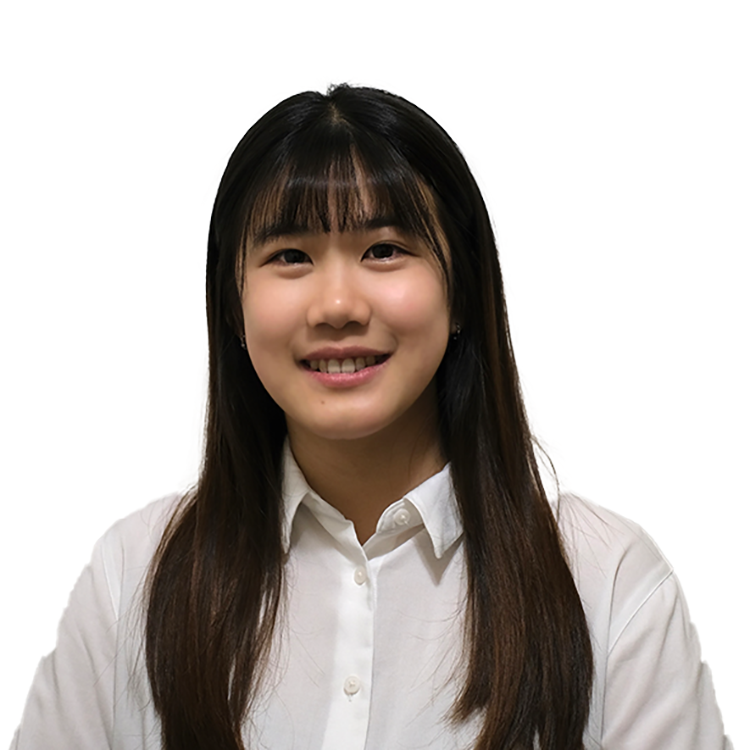
Annie Yang, MS
Research Associate II

Annie joined Juvena Therapeutics as a research associate II working on preclinical in vivo and in vitro disease modeling and drug discovery.
She received her master’s degree in Biomedical Engineering from the University of Southern California. During her time as a graduate student, Annie participated as a research volunteer in an immunology group. Her project focused on investigating the influence of the coronavirus envelope protein on CD1d expression. This experience provided her with valuable training in fundamental molecular techniques, such as genotyping, flow cytometry, western blotting, and conducting in vivo experiments.
Before joining Juvena, Annie worked as a Research Associate in the field of toxicology at Sorrento Therapeutics for one year. In this position, she played a crucial role in supporting the toxicity team, particularly in the tissue cross-reactivity assay. Her responsibilities included performing histological procedures such as embedding and sectioning both paraffin and frozen tissues, conducting H&E staining, IHC, IF, and acquiring images.
During her free time, Annie finds joy in activities such as jogging, hiking, and gaming with her friends.
Learn more about Annie
Drug Discovery
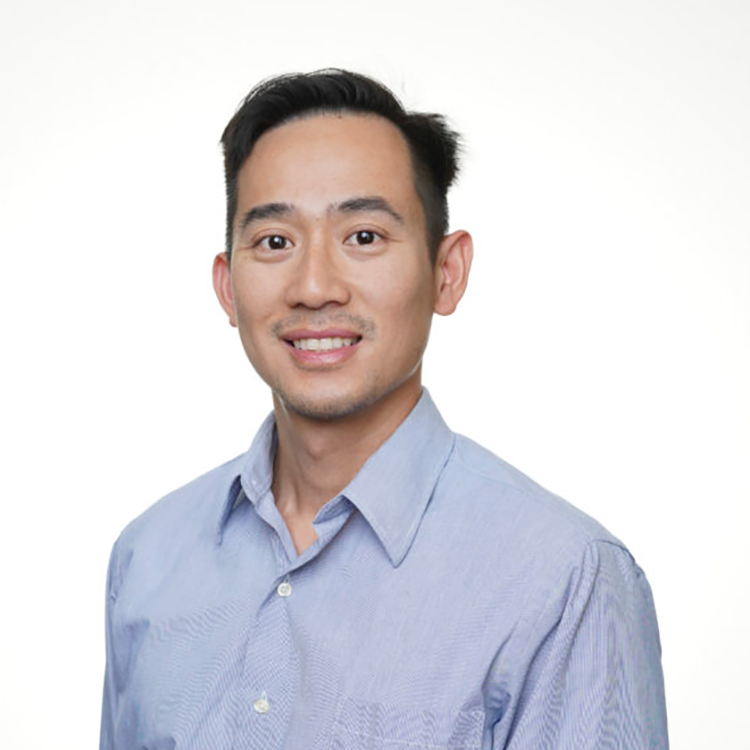
Thach Mai, PhD
Director of Discovery & Platform

Dr. Thach Mai joined Juvena Therapeutics as a Stem Cell Biologist and Bioinformatician to lead the validation and discovery of the key rejuvenating protein factors in Juvena Therapeutics’ complex embryonic secretome cocktail and develop and improve Juvena’s HTS platform for protein therapeutic discovery.
Dr. Mai is a trained stem cell biologist and immunologist with a focus on the mechanisms of muscle degeneration and aging. Dr. Mai received his PhD in Molecular Biology and Immunology from UC Irvine and a postdoctoral fellowship at Stanford University. During his fellowship, Dr. Mai used bioinformatics to accurately quantify high-throughput genomics data from multi-nucleated cells (heterokaryons) consisting of human and mouse gene transcripts to discover a novel transcription factor that drives the reprogramming of fibroblasts to pluripotency. Self-taught in ML with a strong passion for rapid biological discovery, he has generated deep learning models that identify muscle-specific aging genotypes as well as a machine learning classifier for the myogenic differentiation state of a single cell with a heterogeneous population.
Dr. Mai has been awarded multiple fellowships including from the National Institute of Health (F32), has three, 1st author publications including in Nature Journals, and is co-author of thirteen publications with one in review.
Learn more about Thach

Mohammad Hassanipour
Scientist, In vitro Human Disease Modeling

- Experienced and motivated Scientist with a strong background in stem cell biology, human embryonic stem cell, cell culture, molecular biology, vector construction and analytical techniques, including qPCR, ELISA ,FACS, ICC, and Western blot
- 25+ years proficiency in human embryonic stem cell culture and directed differentiation
- Generating Cardiomyocytes, retinal Hepatocytes and Endothelial Progenitor Cells, from human embryonic stem cells to high purity and success rate.
- Developing models of end-stage liver disease and liver cirrhosis in primary human hepatocytes (PHH) and primary rodent hepatocytes, including 2D and 3D spheroids and co-cultures with myofibroblasts, stellate cells and Kupffer cells.
- Design and execution of high-throughput in vitro plasmid-based miRNA screening for acquired liver disease targets.
- Evaluated the transduction efficiency and long term transgene expression of AAV1 and Adeno virus in endothelial cells
- Generation of iPS cells with different methods (e.g. mRNA, lenti virus, sendai virus, siRNA reprogramming)
- Identified optimal cell condition for Exosome production, purification and characterization
- Developed ELISA assay kit for Exosome quantification
- Experience with molecular biology techniques and protein isolation
- Excellent technical, organizational, and communication skills
- Strong analytical and problem-solving capabilities
- Ability to work both independently and in a team environment
Learn more about Mohammad

Mingyu Chung, PhD
Scientist II - Single Cell Genomics

Min received his B.S. in Electrical Engineering at the University of Michigan and worked for five years as a product engineer at Samsung Austin Semiconductor. He received his Ph.D. in Chemical and Systems Biology at Stanford University, where he researched growth factor and cell cycle signaling in the laboratory of Tobias Meyer. He completed his postdoctoral training at Stanford University (laboratory of Thomas Rando), where he leveraged single-cell genomics and chemical and genetic screening to investigate the mechanisms of skeletal muscle stem cell fate specification. Min received an NIH F32 postdoctoral fellowship and is a co-author on 17 publications.
Learn more about Min
LinkedIn

Jyoti Ahlawat, PHD
Associate Scientist

Dr. Ahlawat joined Juvena Therapeutics as an Associate Scientist: Drug Discovery. She holds a Master’s degree in Biotechnology from the Indian Institute of Technology, Roorkee (IITR), and a Ph.D. in Chemistry from the University of Texas at El Paso (UTEP). She is a recipient of Academic and Research Excellence award from the College of Science (UTEP). Her dissertation research involved developing materials and testing them in-vitro to develop therapeutics against the gravest of human diseases such as Alzheimer’s (AD) and Parkinson’s disease (PD).
Dr. Ahlawat has published more than 18 articles and book chapters in international, peer-reviewed, reputed journals. She is a recipient of the title “Rising Star in Nanoscience and Nanotechnology” at the 10th IEE International Conference on nanomaterials and applications (IEEE-NAP 2020). She has won Best presentation awards at the Equniox (2022), 26th Annual BioEnvironmental Polymer Society (BEPS-2019), Graduate Expo (2018), and 8th International conference on smart materials, structure, and systems (ISSS-2017). In addition, she has won various travel awards (2018-2020), four research awards (2019-2021), and graduate scholarships (2019-2020). She is an Editorial board member of the Journal Future Trends in Nanotechnology and is serving as a Guest Editor for Science Progress (SAGE Journal).
She has served as Vice president of Graduate Student Assembly (2018), and as President of BioChem graduate student chapter (2021). She recently received honorarium from Society for Science for serving as a Science Talent Search Evaluator in 2021. She received Certificate of Appreciation from the Graduate School for her contribution to Undergraduate Learning in 2021. She has served as science judge for the Sun Country Science & Engineering fair (2021), Regeneron International Science & Engineering fair (2021) and at 2nd annual El Paso STEM expo competition (2019). She worked as an intern for eight months with a medical device company where she participated and led international projects which included renewal and registration of ophthalmic lenses in Mexico, Creating Instructions for Use (IFUs) and technical files, and Translation of IFUs into European languages.
Dr. Ahlawat serves as a peer-reviewer for journals such as Cell Biochemistry and Biophysics, Nanotechnology for Environmental Engineering, Environmental Science, Journal for Drug Delivery, and technology, and Phytotherapy. She delivered four invited scientific talks at International Conferences in 2021-2022.
Learn more about Jyoti
Protein Science
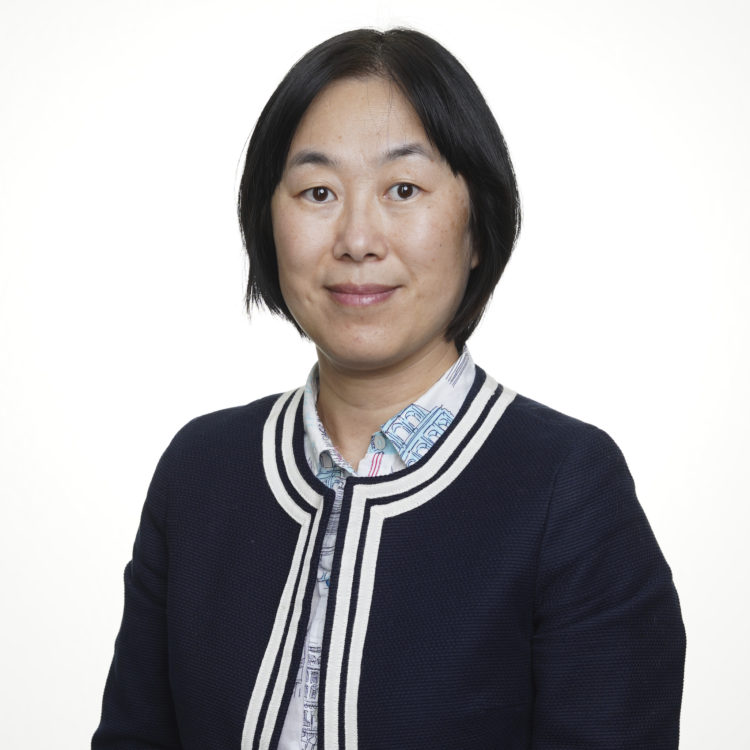
Fengling Liu, PhD
Director of Protein Science

Dr. Fengling Liu brings over 10 years of industry experience developing multiple biologics. Since 2010 she served as the Protein Biochemistry lead or group lead of Protein Science in multiple biotechs in the bay area including Medimmune (AstraZeneca), Relypsa, Atreca and Arcus Biosciences.
Her protein science-focused research spanned target identification/confirmation, lead optimization, protein purification and engineering to support vaccine development, small molecule and antibody drug discovery in infectious disease and Immuno-Oncology. She was trained in Biochemistry and Structure Biology during her PhD at Georgia State University. She studied the molecular basis of HIV protease drug resistance through enzyme kinetics and X-ray crystal structures. She solved over a dozen super high resolution crystal structures of HIV/drug complexes and discovered a novel drug resistance mechanism.
During her postdoc in the lab of Professor Ted Jardetzky in the Structural Biology Department at Stanford Medical School, Dr. Liu studied human viral glycoprotein interactions to discover viral entry inhibitors.
Besides her passion for science and technology, Fengling also enjoys gardening and hiking with family and friends.
Learn more about Fengling

Wei (Vivian) Guo
Senior Scientist
Wei (Vivian) Guo brings over 20 years of biopharmaceutical industry experience focused on protein chemistry and therapeutic antibody development to her role as Senior Scientist of Protein Science at Juvena Therapeutics.
She has broad and deep experience in protein and antibody expression, purification, and analytical characterization. She is also an expert in antibody generation including antigen design, protein conjugation, bispecific antibody generation and drug conjugation. She has extensive cross functional experience in molecular biology, cell culture and assay development, as well as deep trouble-shoot skills.
She received her medical college degree from Hunan Medical University in China.
Vivian loves nature, like walking, hiking, traveling and ping-pong.
Learn more about Vivian

Sarah Tang
Senior Research Associate

Sarah joined Juvena Therapeutics as a Senior Research Associate to contribute to Dr. Fengling Liu’s research on protein expression and purification. She obtained her bachelor’s degree in molecular and cell biology from the University of California, Berkeley.
Before joining Juvena Therapeutics, Sarah worked as a Research Associate in the antibody discovery field, where she attained hybridoma sequences, antibody transient expression, and hit identification. Prior to transitioning to research, Sarah worked in the clinical diagnostics field as a Lab Administrative Manager. She managed lab operations while staying active on the bench.
In Sarah’s free time, she enjoys creating content for her cat’s social media, gaming with friends, and attending ballet performances.
Learn more about Sarah
Data Science

Rohit Jadhav, PHD
Computational Biologist

Dr. Rohit Jadhav brings more than 12 years of cross disciplinary experience encompassing the fields of oncology, immune aging and auto-immune diseases. He has extensive experience in algorithm development for diagnostic and prognostic biomarker discovery dealing with diverse datasets investigating the Transcriptome, Epigenome and DNA mutations in clinical cohorts.
Dr. Jadhav earned his B.Tech. in Bioinformatics from India, a M.S. in Bioinformatics from Indiana University, Indianapolis, a PhD in Molecular Medicine from UT Health, San Antonio as a CPRIT pre-doctoral fellow, followed by a postdoctoral fellowship in Immunology at Stanford School of Medicine and Mayo Clinic.
Masters & PhD (2009-2016)
Dr. Jadhav worked on identifying epigenetic biomarkers investigating alterations in DNA methylation across different cancer types including breast, ovarian, endometrial, oral and prostate. He was awarded a Cancer Prevention and Research Institute of Texas (CPRIT) Predoctoral Fellowship, which enabled him to be involved in collaborative projects focusing on non-invasive approaches for biomarker discovery. One such project involved use of single-cell RNA sequencing to study circulating tumor cells and another involved studying DNA methylation in cell free DNA, both from peripheral blood. As a lead bioinformatician for these studies, he implemented classification-based prediction methods to enable identification of a panel of biomarkers to be used in determining treatment approaches for prostate cancer patients belonging to different subtypes. These studies have led to 3 approved patents from his mentor Dr. Tim Huang. During this time, Dr. Jadhav was also a lead author on the study that identified DNA methylation biomarkers capable of identifying predisposition to breast cancer after prenatal exposure to the compound bisphenol A and preventive effects of genistein.
Postdoctoral Fellowship (2017-2022)
Dr. Jadhav’s work at Stanford University and Mayo Clinic with Dr. Jorg Goronzy who is a leading expert in immune aging and auto-immunity, focused on epigenetics in the context of chromatin accessibility and specifically alterations in the immune cell types like CD4 and CD8 T cells during aging and autoimmune diseases like rheumatoid arthritis. He was also a lead author studying epigenetic alterations in exhausted T-cells post checkpoint blockade therapies in collaboration with Dr. Rafi Ahmed from Emory University. During this time Dr. Jadhav built pipelines deployed in on-prem clusters and in the cloud for analyzing and visualizing data from RNA-seq, ATAC-seq, TCR-seq, single cell multiome (RNA+ATAC), single cell Cite-seq (RNA+Protein) among others.
Dr. Jadhav has published over 30 peer-reviewed papers with over a thousand citations.
Learn more about Rohit
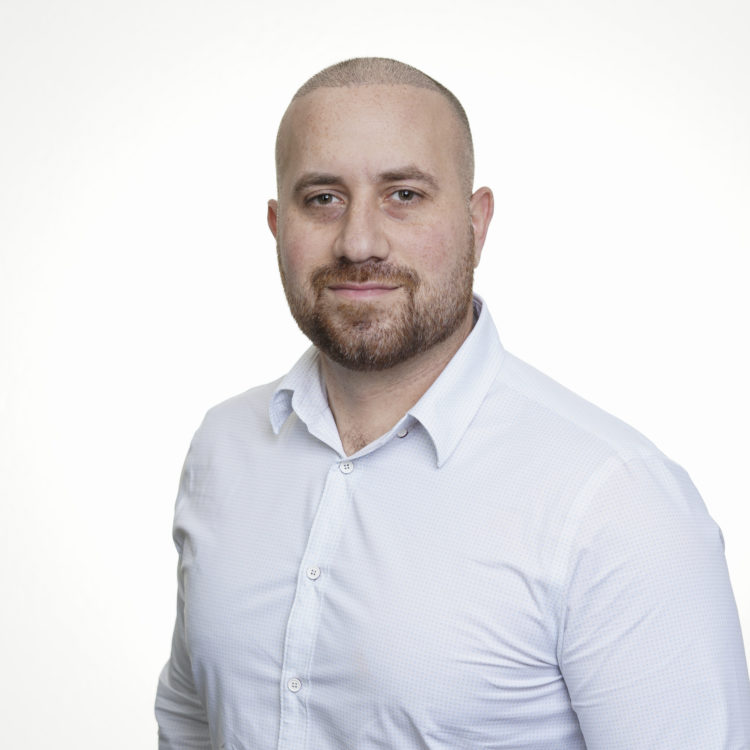
Munir Yousef, MS
Senior Bioinformatics Analyst

Munir Yousef joined Juvena Therapeutics as a bioinformatics analyst to contribute to Juvena’s growing platform by developing robust data analysis pipelines for their in silico protein drug discovery platform. After realizing his passion for data-driven discovery of solutions to real world problems, Munir obtained his Masters degree in Applied Data Science from Syracuse University.
Before officially joining the team, Munir worked as a data science consultant and helped develop internal data analysis and visualization tools to support Juvena’s growing R&D platforms.
Learn more about Munir

